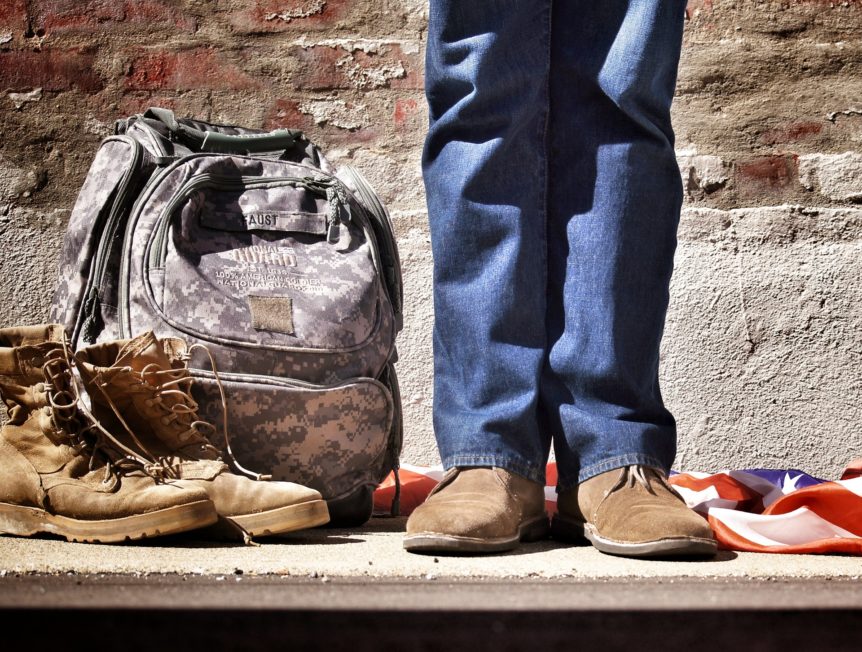The Department of Veterans Affairs (VA) is notorious for long delays in resolving VA complaints and claims for various veterans’ benefits, including financial and medical support. From the initial filing of a claim, veterans have to wait on average 5 years and sometimes as long as 7 years for a final decision.
For financially strapped vets, some of whom need long stays in VA hospitals, extensive and expensive medical treatment, physical therapy, and other support; such long waits can be excruciating. Attempts to force the VA to reform its process through litigation have had limited effect because the courts handling veterans’ claims have considered them strictly on an individual basis.

They never considered class-action lawsuits against the VA. Court decisions had established precedents affecting other similar cases, to be sure, but this still resulted at best in only piecemeal change because the decisions had little impact on the VA’s processing system.
Until recently.
Key Case History
In 2018, the US Court of Appeals for Veterans Claims – the highest court of appeals for veterans’ cases – decided to allow class-action lawsuits against the VA. Here is the basic story:
The case was Monk v. Wilkie. Veteran Conley F. Monk, Jr. had sued the VA protesting what he felt to be an unreasonable delay in resolving his disability VA compensation claim. Since such delays were so common, Monk sought relief not only for himself but for “similarly situated persons facing financial and medical hardship.” He was filing suit, in other words, on behalf of a class of persons – a class action lawsuit.
A lower court denied Monk’s petition for class relief, holding that the Court lacked authority to decide class claims. That decision was reversed on appeal by a Federal Circuit Court. A plurality of the judges in the Court of Appeals for Veterans Claims ruled against Monk’s particular claim for class relief, but at the same time – and this is the point of lasting significance – held that the Court did, in fact, have authority to consider class action claims.

The door was now open for VA class action suits that might actually force a meaningful change in the way the VA does business. Judge Robert N. Davis, concurring with the main decision, actually outlined changes the VA should make to reduce backlog and delay.
The first successful class-action suit against the VA was decided a little less than a year after Monk in June of 2019, in Godsey v. Wilkie. The petitioners in Godsey (echoing a similar claim of Monk’s) argued that the 3-year delay involved just to get their claim status recognized, to get their VA complaints certified for consideration by the VA’s Board of Veterans’ Appeals constituted a violation of their constitutional right to due process. The reasoning is that, as Martin Luther King, Jr. put it, “Justice too long delayed is justice denied.”
Part of what’s “due” in “due process” is a timely completion of the process. If people are made to wait indefinitely to have their cases handled and relief supplied, they might as well not be having their cases handled at all. And the VA appeal process much too long delayed giving veterans their due.
The Court agreed. It ordered that all veterans who had been waiting 18 months or more prior to the Court’s decision be granted immediate certification for consideration by the Board and that the Secretary of the VA provides the Court with an update within 60 days. The case speaks directly only to certification, but it sets a precedent for assertive judicial intervention in the VA’s processing of claims whenever the court determines that delay in any part of the process violates veterans’ right to due process.
Significance for Veterans
The significance of these decisions for veterans is dramatic. First and foremost, they give vets in desperate need of financial and VA health care support a prospect of faster relief. Some veterans are dealing with Gulf War illnesses. A great many combat veterans from the wars in Iraq and Afghanistan suffer from PTSD (Post-Traumatic Stress Disorder) for which they need counseling and/or medication, which sadly they are often not able to get, and this is a leading cause of the high rate of suicide among recent vets.

Other vets have to deal with serious combat injuries such as loss of limbs requiring extensive therapy. Then there are older vets suffering from lingering aftereffects of Agent Orange (the harmful chemical to which many American soldiers were exposed during the Vietnam War). All of these problems are enormously expensive and sometimes prevent vets from working or from working fulltime. For all these vets in need, relief cannot come fast enough.
Second, the Monk and Godsey cases establish that timely resolution of veterans’ benefits and compensation claims is a constitutional right under the central right of due process, which greatly enhances the legal status of those claims and heightens the seriousness with which judges will examine relevant VA complaints.
It is common in modern times for courts to defer to bureaucratic rules and decision-making on the grounds that bureaucrats, who presumably have special expertise in matters under their jurisdiction, are better qualified to settle those matters than are judges. Elevating timely resolution of the status of a constitutional right means that judges will be less likely to defer to VA procedures and decisions in related cases.
Third, in authorizing class-action lawsuits against the VA, these cases give veterans seeking a major reform of the sclerotic VA bureaucracy a powerful means for compelling change. VA class action suits help veterans, by enabling them to join forces, to hold the bureaucrats processing their compensation claims and other benefits claims accountable for inefficiency and neglect and enable courts to intervene more forcefully to ensure the process is fair and bureaucrats are responsive.
Conclusion
In short, the Monk and Godsey cases are landmark decisions that lay the foundation for transformational change for the good in veterans’ affairs. As the above-mentioned Judge Davis said regarding the Monk case, “this is a watershed decision [that] will shape our jurisprudence for years to come and, I hope, bring about positive change for our Nation’s veterans and ensure that justice is done more efficiently and timely.”
The Godsey case cemented Monk’s legacy by demonstrating the Court’s willingness to take dramatic action in cases of VA process failures. We have a long way to go to ensure that America’s vets get all the support they need and deserve, but these cases are a very good start.
If you have more legal questions, you can also chat online with a Laws101.com attorney where you’ll be instantly connected to a lawyer who can give you legal guidance on your specific case or question.
